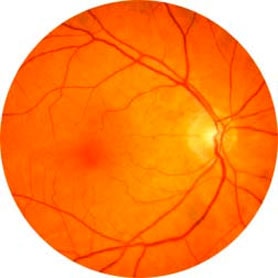Eye Exams
What to expect in an eye examination
You should have an eye examination at least every 2 years. Eye examinations are much more than checks for whether you need glasses - we also carry out a range of tests to assess the health of your eyes. They can help detect problems like glaucoma or diabetic eye disease before you notice the effect on your sight.
Early treatment can often prevent your sight from getting worse - and may even save your sight.

What happens in an eye examination?
An eye examination will normally take about 30 minutes. It should include:
History and symptoms - We will discuss any problems you may be having with your eyesight and/or health in general. Some eye conditions are health related, and certain types of medication can affect your vision.
Current spectacles - If you already wear glasses we will check the lens type and strength, and establish how well you see with them.
Refraction - This will reveal whether you need glasses, whether you are long-sighted, short-sighted, astigmatic and/or presbyopic, and how strong the lenses needs to be. We check your long distance vision, your reading vision and your intermediate vision (particularly relevant if you use a computer).
Oculomotor balance - This test checks that your eye muscles are working together properly so that your eyes are balanced and co-ordinated.
Ophthalmoscopy - This is a check of the internal health of your eyes. An instrument called an ophthalmoscope is shone into the eye so that we can see the internal parts clearly. Conditions such as cataracts, hypertension, glaucoma, diabetes and macular degeneration can be indicated from ophthalmoscopic examination.
Pupil reflexes - The pupil automatically dilates and constricts to control the amount of light passing into the eye. If the pupil reflex isn't working normally it can indicate underlying neurological problems, requiring further investigation.
All adults will also undergo the following tests, which are particularly useful in detecting, amongst other things, the early signs of glaucoma:
Visual field test - This checks your peripheral vision - you will be shown patterns of light on a screen to test which ones you can see.
Intraocular pressure test - which measures internal pressure in the eyes. Earlier this year we have improved this test by acquiring the latest Icare tonometer-an instrument which is quick, accurate and requires no anesthesia or no air puff. It is painless in comparison to old fashioned instruments.
At the end of your eye examination the results will be explained and discussed with you, and our Optometrist will be happy to answer any questions you may have. If you are a driver the eye examination will ensure that you meet the standard of vision legally required.
NB - An eye examination is not the same as a contact lens check-up, which is an additional annual requirement for contact lens wearers.















